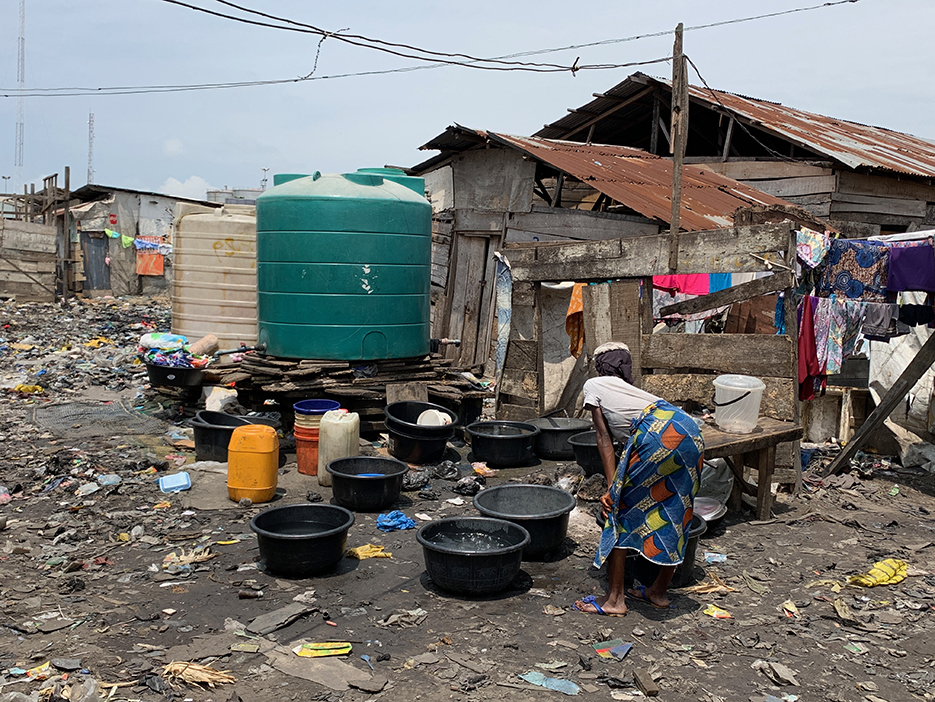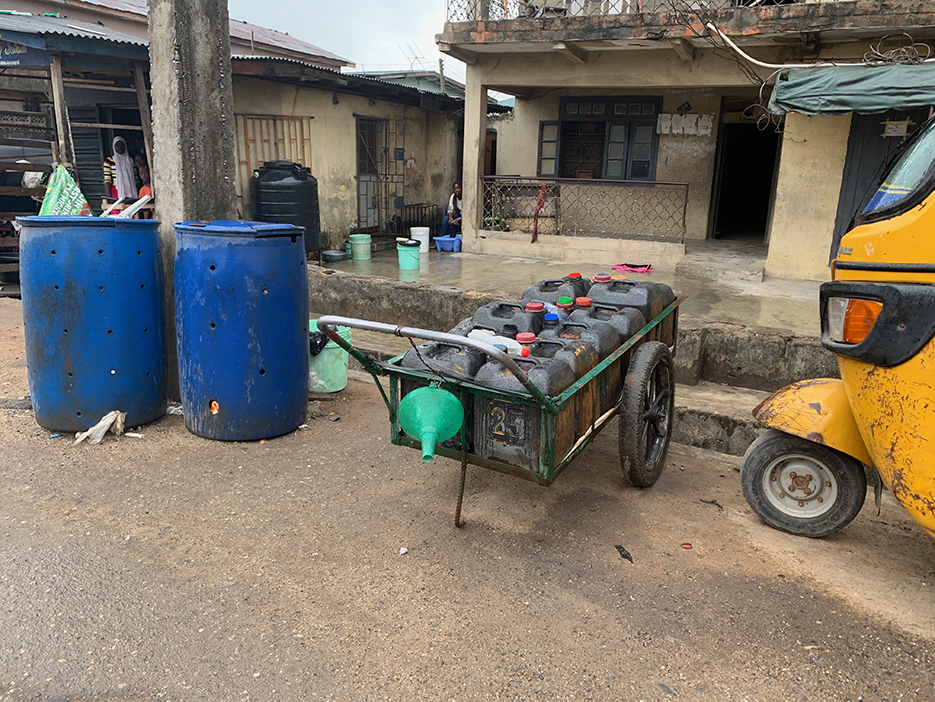Urban systems:
Otumara, Lagos
Prof. Fabienne Hoelzel, Prof. Matthias Rudolph, academic associate Ute Vees, lecturer Daniel Kötter
Tuesday and Wednesday, 9 AM to 6 PM
English
Introduction: Wed, April 8, 11 AM (via Zoom)
1st crit: Mon, April 27, 10 AM (possibly via Zoom)
2nd crit: Wed, May 20, 10 AM (possibly via Zoom)
3rd crit: Tue, June 09, 10 AM
Finals: Wed, July 8, 10 AM
Final project upload digital data: Wed, July 29, 6 PM
Integrated (voluntary) DAAD fall school in Lagos: beginning of October, 2020 (travel grants available)
Ute Vees, ute.vees@abk-stuttgart.de

Lagos is among the three biggest cities in Africa and among the twenty largest metropolitan regions in the world. Compared to the latter, Lagos has also one of the smallest infrastructures in the world. This is complicated by the fact that even the small and existing infrastructure is far from being fully operational. Since many decades, the state government struggles to provide the necessary basic urban services and systems to the people such as water supply, energy supply, mobility supply, waste management or housing. As a result, the people themselves do and have to jump in to fill the gap. Against this backdrop, Lagos and the centrally located community Otumara in the Ebute Metta neighborhood will serve during the summer semester 2020 as a laboratory to investigate and develop future-proof and robust urban systems.
Otumara’s residents, led by two traditional leaders (baales) and organized in various grassroots residents’ organizations such as the Nigerian Informal Settlement/ Slum Federation live basically without any significant government support – partly because the government is not willing or capable, partly because the people decided so. In the first quarter of the semester, the students will investigate the inherent logic of urban systems like water, housing, and waste, among other. As “Urban systems: Otumara, Lagos” is a collaboration with the Department of Architecture of the University of Lagos (Unilag), three architecture students from Lagos will fully participate in the class as program students. Prior to the start of the semester and during the first weeks of semester, the students from Unilag have been and will be engaging in field research in Lagos, including video footage. The material and knowledge will be made available for all the participants of the urban design studio.
A series of first and rough mini-scenarios will build the foundation for the actual and complex urban design project, produced by all the students in a joint and collaborative approach during the workshop week from April 20. The aim is to come up with an urban design project for Otumara and its residents that applies and encourages effective strategies and implementations; actors-based and truly future-oriented, considering the existing pre-conditions and tapping into these existing potentials.
The semester will conclude in the conception of a joint urban design project, bringing together all the different phases of the urban design studios, including the video sequences produced in Lagos. The medium of film and video will play an important role throughout the entire semester. Another special focus will lie on the convincing graphical representation of complex urban design proposals.
The results of the urban design studio “Urban systems: Otumara, Lagos” as the basis for the DAAD funded fall school “Learning in Africa. Urban design, planning, and governance beyond top-down and bottom-up” (beginning of October 2020). The production and edition of a series of short video movies that will be the primary mean of the related urban research. A series of travel subsidies is available for the field research in Lagos. Obtaining a visa at the Nigerian consulate in Frankfurt, including a mandatory interview appointment as well as a yellow fever vaccination are required to enter Nigeria.
(Image credits: Fabienne Hoelzel)

